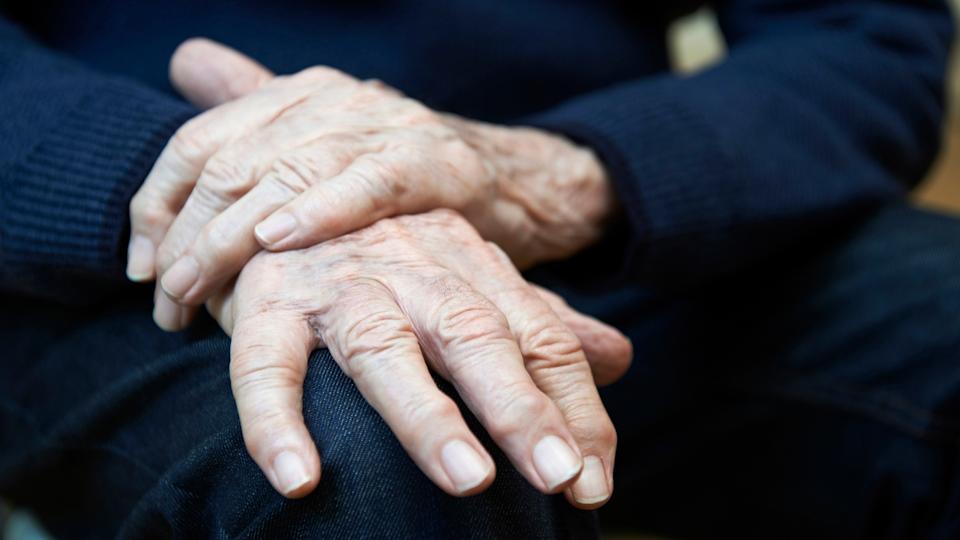Postnatal depression: a personal perspective

Postnatal depression affects around 1 in 10 women in the UK yet many of those affected go undiagnosed. Effective treatments are available and support groups can help, yet many women feel they will be judged by wider society. Here one woman recounts her experience.
Unlike a lot of women, I sailed through my pregnancy, blissfully unaware for almost two months, despite the pregnancy being planned, that there was another life growing inside me. I was extremely relaxed, managing to run until I was seven months pregnant, take long walks and even swim the day before I was induced.
I had found out I was expecting a little girl so enjoyed playing music while I was pregnant and lying in bed feeling lots of wriggling. I felt as if we had bonded before she was born and couldn't wait to be a new mum.
Labour itself was long and something of a blur as I had an epidural and top-ups every 90 minutes. My memories are of drinking copious amounts of Lucozade, eating vast quantities of chocolate and reading magazines, feeling absolutely no pain whatsoever and very much looking forward to our impending arrival.
It came as something of a shock, therefore, that I felt no excitement when my daughter finally arrived. I just felt sheer panic that I was responsible for something so tiny when I had never even changed a nappy before. I remember one of the first feelings I had wasn't elation but the thought that my social life was now over and nothing would ever be spontaneous again, which filled me with overwhelming dread. In the back of my mind I thought it seemed odd to be thinking about not being able to go to the pub 20 minutes after I'd given birth, but it was something I felt very panicky about.
Once back home the sense of panic didn't subside. Breastfeeding wasn't working and this just compounded the feeling of being a failure and the world's worst mother as I couldn't manage something so simple. I would sit with my daughter asleep on my lap feeling as if I couldn't breathe, wondering what on earth I would do when she woke up and started crying. I had naively assumed that babies sleep all day and I would soon be able to get back into a normal routine and sleep, exercise, cook dinner and clean the house so the reality of having no routine or structure to my days was a huge shock to the system.
My parents had a drinks party to show their new granddaughter off to their friends when she was 10 days old, and I sat there unable to relax or enjoy myself, wondering what exactly we were celebrating and feeling like I wanted to run and run as far as I possibly could – or sleep for a week so that when I woke up hopefully the nightmare that was now my life would have improved.
I remember pacing the lounge in the first few weeks at 3am trying to rock my daughter to sleep with her screaming and me not knowing whether she was tired, hungry, cold, warm or unwell. I felt that she would be better off without me and that I had made the biggest mistake of my life. I felt trapped, despite having a very supportive husband and family and close friends.
The day before my husband went back to work I sat in floods of tears, which happened most days, telling him I couldn't cope on my own and he'd have to give up work. I decided that I would take three weeks' maternity leave and then go back to work and he could take the six months' leave I had planned. At the point I told him I'd be better off dead he gently sat me down and told me that what I was feeling wasn't normal and I needed to see a doctor.
My Mum had been there when a healthcare visitor came to the house and I remember being in tears saying how ashamed I was that I was such a bad mother and my daughter deserved someone much better than me. Nothing the health visitor or my Mum said reassured me and I used to feel sick at the thought of being left alone to look after her.
I managed to get an emergency doctor's appointment for the next day – the day my husband went back to work – and remember feeling very panicky at the thought of having to be at a particular place at a certain time. What would I do if my daughter needed a bottle or started crying? Everyone would stare at me and realise I was a bad mother. I managed the 10-minute drive to the doctor's and was told I had an appointment with a male doctor I had never seen before. I remember thinking it was completely futile and he would just tell me to pull myself together.
As it turned out, the doctor was so kind and understanding as I sat there in floods of tears with my daughter sleeping peacefully in her car seat. He immediately had me assessed by a health visitor. I had to answer a series of questions about my state of mind and how I was feeling and was very quickly told that I was displaying all the symptoms of postnatal depression.
They thought the best option was a course of antidepressants. The realisation that I wasn't insane and that there was something wrong with me was hugely reassuring and almost before I started taking the antidepressants I felt slightly calmer.
I was touched and appreciated that both the doctor and the health visitor had been so supportive and genuinely seemed to understand how overwhelming I was finding simple tasks such as making time to get dressed and brush my teeth. A few days later, when my daughter was just over three weeks old, the health visitor came to see me and wrote in her notes that my daughter had smiled at me and there was a clear bond between us. That made me realise that perhaps I wasn't such a bad mother after all. She had also reassured me that hundreds of women are unable to breastfeed and that the world's best paediatrician wouldn't be able to tell the difference between a bottle-fed and a breast-fed baby so to stop giving myself such a hard time. Formula was there for a reason and was perfectly well equipped to meet my baby's nutritional needs – something which also made me feel as if a huge weight had been lifted off my shoulders.
As soon as I started taking my medication, life became a lot more manageable and although I still felt the frustrations that every new Mum feels and had bad days when the constant crying got to me, I no longer felt my life was over and that I was a failure. After seven weeks my daughter started sleeping through the night so I managed to get back into the routine that I craved and needed.
After six months I gradually started reducing the antidepressants and was pleased to find my initial feelings didn't return and I was able to continue enjoying my daughter and spending time with her.
A few weeks ago a leaflet was posted through my door about a postnatal support group in my area – something I wish had been available when I needed it. But it's good to know that postnatal depression is now being recognised as an illness and more help is available to the women who need it.
I still feel upset when I look back on the first two weeks of my daughter's life and guilty for causing my family so much worry but I know now that I'm a good Mum and have an amazing bond with my daughter. If I had another child I would recognise the symptoms immediately and would ensure I sought the help I needed straight away.
About the author:
Sarah Adams is an alias for a woman who wishes to remain anonymous as she believes stigma remains around mental health issues.
Have your say: Do you think the government's recent focus on increasing funding and reducing discrimination around mental health is working?
Related article:











